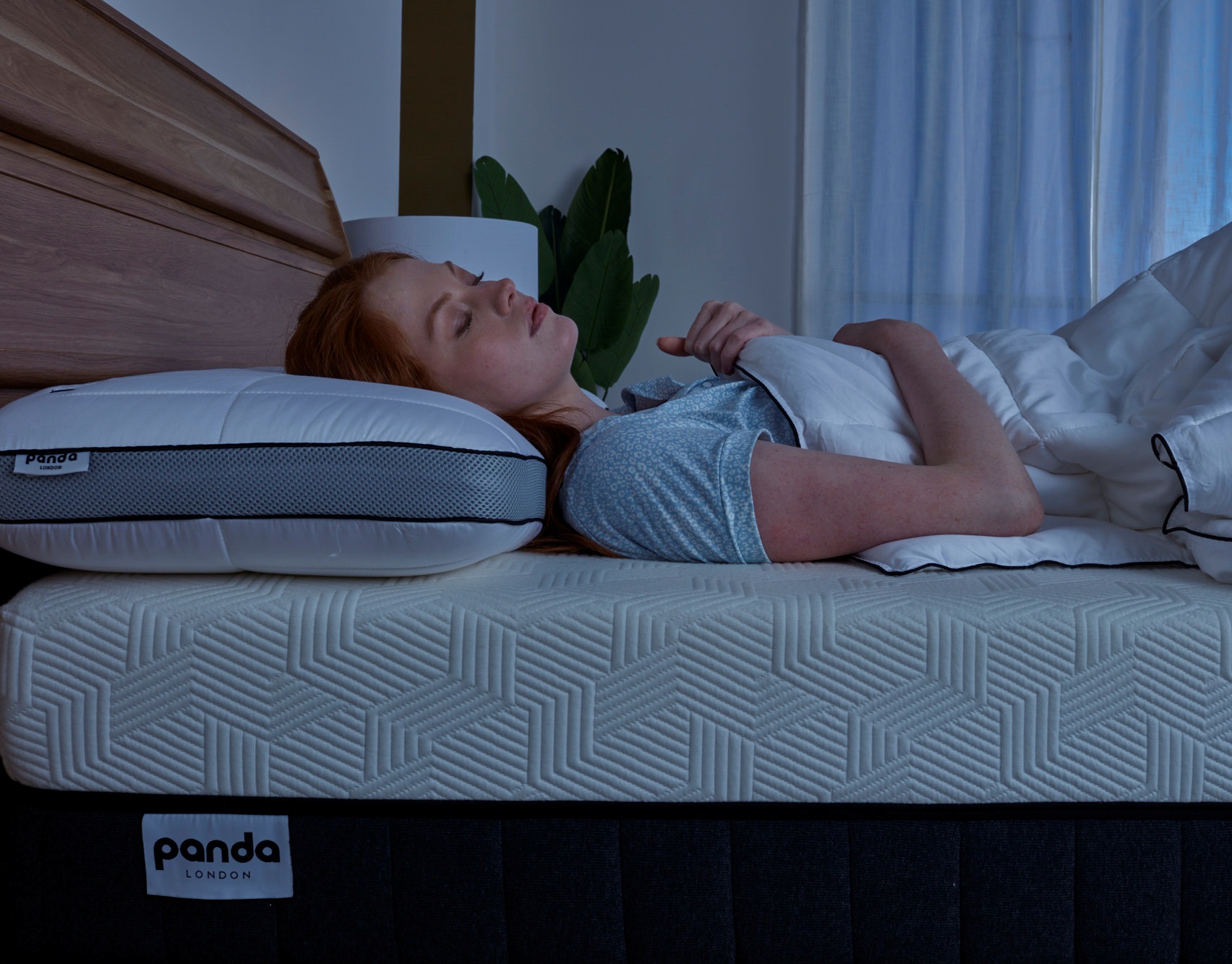Spring Forward, Fall Back: Unpacking the Impact of Daylight Saving on Your Slumber
Last updated on February 7th, 2024 at 02:25 pm
And just like that, the clocks are about to go back. As we slide into the season of darker mornings and shorter days, curl up with your cosiest duvet and discover more about daylight saving time and how it affects your sleep.
What is the purpose of day light saving time?
To most of us, daylight saving time means an extra hour in bed in the fall and losing an hour in the Summer. Hence the delightful little saying, “Spring forward, fall back.” However, ever wondered why exactly we have it? The purpose of daylight saving time is to help us make the most of the natural daylight. Getting enough natural light is important, not just for productivity. It helps regulate our moods, immune systems and sleep cycles. Not having enough can lead to disrupted sleep patterns and even seasonal affective disorder (S.A.D), affecting 1 in 3 UK adults. The good news is that you can set yourself up for a vibrant and healthy season in plenty of ways. Sleep coach Max Kirsten recommends “setting yourself up for a comfortable sleep with a good mattress, tuck into an immune boosting diet and make sure you get outside every day.” More from Max later; first, let’s explore some key facts about daylight saving time and how it affects sleep.

Key facts about daylight saving time
Daylight saving time first came about over 100 years ago. Germany was the first country to set the clocks forward nationally. Less than 40% of countries in the world use daylight saving time.
Throughout history, there have been several variations to the traditional hour of clocks going forward and back depending on the country and how they can make the most of the natural light.
Benjamin Franklin first suggested the practice as far back as 1974.
During the Winter solstice, right before Christmas, we only get 8 hours of sunlight; putting the clocks back allows us to enjoy an earlier sunrise and a brighter commute on the way to work.
In March and September every year, there is a particular day with 12 hours of equal darkness and light. This is known as the ‘equinox’, a little bit of Latin for you, which means ‘equal night’.
In what ways does daylight saving time affect sleep?
Back to Max, our sleep coach explains that “while losing an hour in bed during Summer often has a bigger impact, gaining that precious hour in bed in October doesn’t always mean extra sleep” Sigh. So, why? Any changes to the amount of natural light we are exposed to can affect out sleep cycle as our circadian rhythm is disrupted. This is what controls when we feel sleepy or awake. Darker mornings encourage the production of melatonin leaving us in a constant state of ‘day sleepiness’. Having more light later in the day means we may find it harder to drift off. Our energy levels are out of whack leading to irritable moods and generally feeeling a bit ‘blah”.
While some people adjust more easily to the clocks going back and forward, for many it can be a real struggle. Any loss of system can compromise health and wellbeing and zap the joy of a beautiful, colourful season. If you dread the darker months, you could just need to make some simple changes to your daily set up. Here are some easy ways to optimise your sleep and wake up ready to pumpkin!
How to prepare for Daylight Saving Time
Get bedtime set up for snuggling
If there’s one time of year you can turn bedtime into a snuggly retreat, it’s October. “You want to make the bed a place you look forward to falling into,” says Max. “having a supportive, comfortable pillow and mattress that optimises alignment and, most importantly, you find comfortable will help you drift off and maximise the quality of your rest”. Also, ensure your duvet is warm enough, which might mean changing to a tog of at least 10. An Eye Mask can also help ensure you are not exposed to any ambient light as you fall asleep. To ease you into darker mornings, an LED light can help to expose you to light, making you feel more awake before you reach for that first cup of coffee.
Dig into healthy habits
It is tempting to make caffeine your go-to energy source during the darker months, but it may leave you feeling exhausted. Too much caffeine can make your brain more alert, so it’s harder to fall asleep. Try to make it a morning thing and limit intake in the afternoons; switching to herbal teas and a relaxing bedtime routine will make you feel far more refreshed. A warm bath and a cosy movie are perfect seasonal treats, and as for sofa snacks, stick to immune-boosting foods like fresh fruit, seasonal veg, and healthy proteins. Bananas and yoghurt are sleepy winners as they are a yummy source of magnesium and tryptophan, stimulating brain-calming and relaxing hormones. Choosing these over-sugar snacks will help set you up for a better night’s kip.
Let there be light
While the days are shorter and the weather may not be calling you outside, getting out for a brisk walk and “enjoying at least 30 minutes of natural sunlight a day can help regulate your sleep cycle” says Max. Whether its an early morning stroll, crunching over orange leaves, or an unwinding walk to underline the working day. Try and enjoy the great outdoors as much as you can, wrapped in scarves and gloves of course. You will thank yourself when you are snuggled up in bed later, ready to drift-off for sweet Autumn dreams.
Daylight saving time affects us all differently. While changes in your daily light exposure can affect your mood and sleep, using these simple tips will help set you up for a far brighter season.
Have a wonderful Autumn
FAQ
What is Daylight Saving Time (DST)?
Last updated on February 7th, 2024 at 02:25 pm
Daylight Saving Time is the practice of setting clocks forward by one hour during the warmer months, typically spring or summer, and then setting them back again in the cooler months, usually autumn or fall. The aim is to make better use of natural daylight and conserve energy.
How does DST affect sleep patterns?
Last updated on February 7th, 2024 at 02:25 pm
The sudden shift in time can disrupt our natural circadian rhythm, causing some individuals to experience difficulties falling asleep and waking up at their usual times. It can take several days for the body to adjust to this time change.
Can DST impact the quality of sleep?
Last updated on February 7th, 2024 at 02:25 pm
Yes, it can. The abrupt change can lead to shorter and lower-quality sleep, as the body may still adjust to the new schedule. Some individuals may experience sleep disturbances, such as insomnia or restlessness.
How can I minimize the effects of DST on my sleep?
Last updated on February 7th, 2024 at 02:25 pm
To minimize sleep disruptions during DST transitions, try gradually adjusting your sleep schedule by going to bed and waking up 15-30 minutes earlier or later in the days leading up to the change. Ensure your sleep environment is conducive to rest, and practice good sleep hygiene.
Are there any benefits to DST for sleep?
Last updated on February 7th, 2024 at 02:25 pm
Some people may enjoy the extended evening daylight, which can be mood-lifting and promote outdoor activities. However, managing your sleep patterns is essential to fully benefit from these extended daylight hours.
What are some general tips for better sleep during DST transitions?
Last updated on February 7th, 2024 at 02:25 pm
Maintain a consistent sleep schedule, limit exposure to bright screens before bedtime, create a comfortable sleep environment, and avoid caffeine or heavy meals close to bedtime.
Explore our range:
Bamboo Mattress Topper
Rated 4.97 out of 5£84.96 – £204.00Memory Foam Bamboo Pillow
Rated 4.96 out of 5£44.95Original price was: £44.95.£38.21Current price is: £38.21.100% Bamboo Bedding
Rated 5 out of 5£16.96 – £153.00Bamboo Mattress Protector
Rated 5.00 out of 5£16.96 – £42.50




